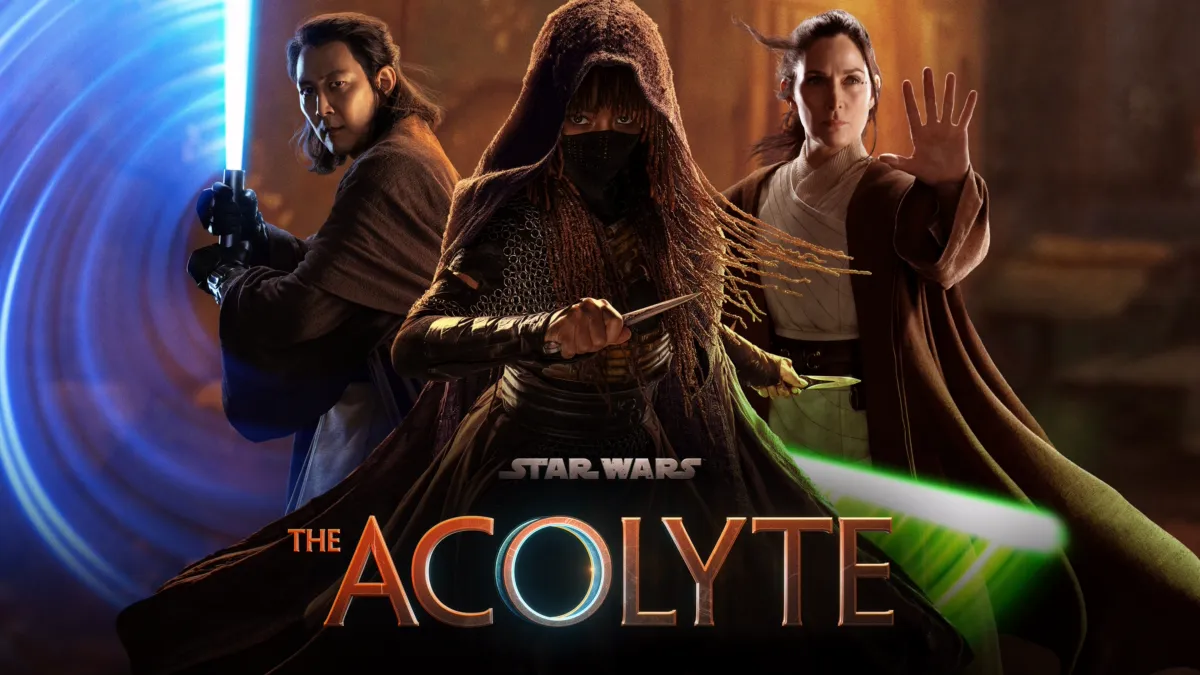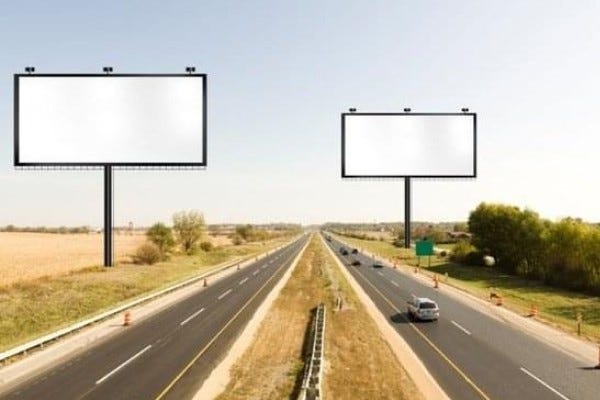Capitalism Can't Figure Out How to Operate in a World Without Advertising
Venture capitalism killed the advertising model and now nobody knows how to make media work
As many of you know by now, I’m somewhat critical of capitalism, which is why it might surprise many of you to learn that, in my weaker moments, I yearn for the return of the days of relentless, ubiquitous advertising.
I’m not just referring to some of those old ads that I kind of have a soft spot for, the ones that actually added to the culture for better or worse.
No, I mean just kind of yearn for the way things used to work. I don’t miss advertising itself, I miss what it actually did for us. For artists, creatives, journalists, and many other industries, advertising generated the revenue stream which enabled people to not only make a living but also have a lot more general freedom within those industries.
In the first few decades of the internet in particular we were living in a golden age of free information and free entertainment, and the knock-on effect for people who didn’t work in these industries but still needed to do literally anything else to earn a living was that advertising subsidised just enough of the non-working portions of our lives to make the working portions of our lives more bearable.
You’ll probably wonder why I’m talking about advertising in the past tense like you don’t still see it all the god damn time but the fact is that the business model in which a company buys space or timeslots within someone else’s product to tell you about their product, and you accept that advertising in lieu of paying for the product – that business model is crying out in the agony of its final tortured days. The result is that the ads you do still get are now more intrusive and annoying than ever before, which ironically accelerates the problem.
A lot of this is Big Ad’s fault and a lot of it is Big Tech’s fault. You can’t help seeing this situation like a battle between two immense kaiju monsters pummelling the stuffing out of each other and stomping all over the city below, their hatred for each other matched only for their disdain for human beings.
I had a lot of trouble researching this piece for the exact reasons that this piece is actually about. Research and fact checking media sources was part of my primary job for several years but that job went away when the website I worked for died in a two-punch knockout—when ad revenue dried up for all the media sources they all went behind paywalls, which we couldn’t afford to bypass because our own ad revenue dried up.
That website, instead of publishing fascinating essays full of rigorously sourced pop culture and history facts, now just reposts jokes and screenshots from Twitter and Reddit because that’s the only free content left.
Still, there was a golden age of stability in the model. The model was, in fact, so stable that nobody predicted anything going wrong with it. More good quality media than ever before in history, online and on television and the radio and other places, more in fact than anyone could plausibly ever consume, was now freely available to everyone. The creators of that media were making piles of money. The advertising agencies were making piles of money. The companies doing the advertising were making piles of money. Everyone was winning, so where was the flaw?
The flaw was that ads are fucking obnoxious and annoying and everybody hates them.
If the advertisers hadn’t gone to such lengths to munch on the content they were subsidizing and violate the precarious balance in favour of ever more tyranny over our attention then everybody would still get along fine. It all ran like clockwork. They could have shut their mouth, cooked, and made as much money as they ever needed. But they had to blow it all up.
Of course they were going to blow it up, because that’s what capitalism does in the end. From consumer media to natural resources, if there’s a goose laying golden eggs they can’t slash its throat fast enough.
Good advertising is like good makeup—it’s best applied if people don’t notice it’s there at all. But ads got too big and stupid and loud. On the internet the ads covered up what you were trying to read or generated browser popups. YouTube ads started off as tiny little Google ads at the bottom of the video, but these became full broadcast ads at the start that you had to watch for 10 seconds before you could skip. Then 30 seconds. Then you had to watch the whole ad to get to the next ad that was 10 seconds before you could skip.
Then came the tracking cookies and the malware and whatever else and that ringaling-ling-ling singing frog thing that made people long for the days when the most annoying thing in advertising was the fucking Noid. Let’s be clear—nobody, and I mean nobody, was ever under the impression that the ads were on their side or laughing with them, but they were at least a tolerable expense if they could make you smile. Everyone liked the G-O-GG-O guy. Nobody smiled when a lesser Kardashian handed a Pepsi to a cop. Who was that even for?
People started finding ways to bypass the ads. On the internet that meant ad-blockers. For other media there was piracy. It led to a kind of tragedy of the commons style scenario where everyone felt fine with blocking the ads because everyone else was still subsidizing the media, except they weren’t, because everyone else was also blocking the ads.
Nobody ever signed a contract agreeing to put up with the ads. The problem with advertising is that, by its very nature, it has an adversarial relationship with its audience. And the attempts to excise ads from our lives created an effect very similar to the overprescription of antibiotics—as you likely know, the efforts to wipe out all the germs with antibiotics means that only the strongest and most resistant germs survive and replicate, which creates demand for stronger drugs, which create stronger germs. Just mentally substitute germs with ads.
Long story short, there’s now an entire industry dedicated to researching how to make ads that brute force their way through your efforts to avoid them. That generally means more insistent, more intrusive, more obnoxious ads.
Ads are shit and nobody wants them. The problem is that the economic system of capitalism that we have doesn’t have any model that works without them. According to the acolytes of capitalism, the Invisible Hand of the Free Market™©® is supposed to naturally expel the stuff people don’t want. But advertising is a critical component of the basic functioning of the market, and people don’t want it, so right now capitalism is operating kind of like a body receiving emergency care from a team of panicking doctors as its immune system tries to shut down several of its own vital organs.
Here comes Big Tech to the rescue with some Big Ideas to vanquish Big Ad and save society and the market. Unfortunately all of these ideas were built on cool sounding stuff that promised to kill the ad industry now and figure out how to make money afterward. It was all based on Big Tech’s favourite don’t-call-it-a-Ponzi-scheme, “venture capital.”
Tech companies keep attempting to shake off the advertising model completely and solve the difficult puzzle of creating services that deliver ad-free entertainment to the consumer that the consumer pays for directly. I’m using one of those services right now to deliver this column to you, it’s called Substack. Others you would have heard of are Netflix and Spotify.
The reason it’s such a puzzle to solve is exactly the reason advertising worked in the first place—people can’t afford to shoulder the full cost of the media they consume. By and large we just don’t earn enough. It’s a drastically uneven balance between spending power and the cost of producing quality media that advertising has historically footed a lot of the bill for.
Removing this element often comes at the cost of variety or quality, and tech startups that claim otherwise are often selling a lie to you. That’s where venture capital comes in. It’s the ultimate fake-it-till-you-make-it business model.
Businesses that offer to sell you a (1) wide variety of (2) good quality, (3) ad-free content that (4) you can afford are lying about at least one of those four things, and the initial illusion that they’re able to do all of this is propped up by the invisible cloud of fake money that is venture capital. When the cloud evaporates, so too do some or all of the above promises, so the mission is to lock enough people in and do enough damage to the rest of the industry that, by the time the money dries up, they will hopefully have figured out a way to make actual money.
Or else the company can just collapse and take a whole chunk of the media landscape with it.
This is literally how Netflix got started and why it’s suffering so much now, and poisoning entire industries of visual media as it dies. When Netflix got going with an amazing idea—just five bucks a month gives you unlimited access to a bottomless selection of TV and movies all in one place with no ads—they knew that idea wasn’t plausible long term. The goal of venture capital backed media startups is, more often than not, to starve the entire competition to death by operating at a massive loss initially and then figuring out how to restructure the operation towards profitability after they have a near total monopoly.
That means that, yes, they are eventually going to alter the deal and you will pray they do not alter it further. For Netflix and the other big streaming services, that means the variety and the quality of shows are both on a downward trend as capital dries up and shows need to be made more cheaply, which in turn means skimping on quality or cheating writers.
For the media consumer it’s just making us cynical and everything. It’s not worth getting into any new series because almost none of them are getting funded for a second season. Entire movies are, increasingly, being shredded even in post-development for business purposes. The golden age of television ended with Game of Thrones, and didn’t even last to the end of Game of Thrones. TV died in, like, Game of Thrones season 7.
Oh and yes, ads are returning to the streaming services.

Paying a chunk of money at real cost for a piece of media is a model that works for some forms of media but not others. It works for types of media that you can more easily think of as luxury goods. It works for books, and it works for movies. It doesn’t work for all of the media that we consume, and you probably don’t even realise how much media we actually do consume, particularly if we want to keep our fingers on the pulse of what’s going on in the world. It still hasn’t sunk in for me, plagued as I am by the memory of how research used to be, and so I still feel the stabs of annoyance every time I try to write a piece like this and the research keeps slapping me in the face with pop-up boxes saying To read this article: $5 per month introductory offer. Followed by a tiny asterisk.
Free news and current affairs media was killed also by Big Tech venture capitalism. Specifically, the social media model pioneered by Mark Zuckerberg and others. These products were also free, initially, and only very sparsely, when at all, populated with ads. But “Web 2.0,” the social media restructure of the internet, was just another rug-pull orchestrated by venture capital. Facebook, Twitter, Reddit, and the other titans of the landscape weren’t making money but their servers weren’t running on fairy dust and dreams either. They had strategic and wealthy benefactors propping them up until they could gather enough power to initiate phase two.
If you want to learn more about the catastrophic damage caused by the Web 2.0 project then I recommend Cory Doctorow’s Social Quitting, probably the most important essay ever written on the topic and the one in which he coins the term enshittification. Very briefly for our purposes here, what happened to written news and entertainment media is this: Social media became overwhelmingly the primary portal through which media was discovered, accessed, and consumed. Eventually venture capital ran out, and ads arrived on social media en masse. But because social media had become everyone’s gateway to the news, that’s where the ads flocked, and then Facebook started shaking down media sites for money if they wanted their links to show up at all.
News, commentary, and entertainment media, including the website that I used to work for, were ripped away from the advertising model that had sustained them and now had to consider their options: Either pay Zuckerberg an absurd ransom, go behind paywalls that charged their own users directly to read their content, scale back drastically, or die. Most news media wound up choosing the paywall option, which is why 95% of the top results on Google when you ask about anything that’s happened in the past 10 years will simply produce a popup asking whether you prefer a monthly or annual subscription.
Substack is an ad-free, reader-pays model backed by venture capital that I hope survives the inevitable exhaustion of its free money reserves without changing in some key way I can’t anticipate, but with apology to the captains of this ship for whom I’m rooting just because I’m on board it, I trust tech guys just an inch above zilch these days. I have pay options for my subscribers and perks for doing so, but I keep very little locked behind paywalls because at the end of the day I know a lot of even my dutiful show-up-every-week readers aren’t able to drop a fiver per month on everything they read habitually online. I know because I’m one of you.
I subscribe monetarily to what I can reasonably afford in terms of written media which amounts to a few Substacks and a very small handful of mainstream media publications that account for a tiny percentage of the many dozens of publications I would like to support, and the only one I’ll disclose is Rolling Stone which I pay for almost entirely for one brilliant and hilariously sardonic writer, Miles Klee. I won’t disclose the others because it’s too much of a distraction from my point to invite judgment about who I’m funding (please don’t worry, it’s nothing that would make you too mad. I’m not paying for fuckin’ Epoch Times or any Murdoch garbage).
I’d kind of like to have the option of reading that garbage, though. See, what upsets me about the cordoning off and subscription paywalling of every internet publication is how this is affecting our society’s media diet.
The problem is this: All publications have their own point of view biases, and most people gravitate naturally toward the media that reinforces the biases they already have. This is true for all of us, and the only way to plausibly counteract it is with relatively well lubricated access to the full media ecosystem. If people are forced to pay individually and directly for all of the news and media that they consume then they are naturally going to direct their resources toward the points of view they most agree with—which leads to ideological kettling and radicalization rather than actual enlightenment.
It would be remiss of me to get all the way through this without mentioning my favourite idiot billionaire punching bag, Elon Musk, who, in his immense ego and naivete, figured he could monetize Twitter and ascend beyond the advertising model by simply asking all the people who had been using it for free for the past decade to switch to a monthly subscription in return for a blue checkmark and the knowledge that they’re supporting Free Speech™©®.
Musk, whose new selling point for Twitter was that white nationalism was now not only allowed but encouraged, overestimated both the prevalence of and demand for white nationalism among Twitter’s userbase and its capacity to fund the site in lieu of the drop in advertising revenue. When it turned out that nobody actually wanted to pay for Twitter even though the super cool apartheid rocket man was giving them the unlimited N-pass, Musk flew into a year-long tantrum and has launched several lawsuits against companies that refuse to advertise alongside 1488 material with the incredibly dubious argument that refusing to buy ads on Twitter constitutes some kind of RICO or racketeering conspiracy against him.
Elon Musk doesn’t know how to escape the advertising model for online media without an infinite supply of venture capital pouring into it, and that supply is running out fast. It’s not just that Musk is unusually ignorant or bad at what he does. I mean he is, but the point is nobody has quite figured it out yet. It seems insane in an era of 21st century technology that we simply can’t figure out a way to deliver media to the masses without compelling them to buy a Big Mac in the meanwhile, but that’s just the way of it. If you’re ever tempted to think we might need a new economic model that isn’t reliant on either venture capital or apartheid, then it sounds like you might just need a tall, refreshing glass of Pepsi to clear your mind, friend.












I've been thinking about this and https://speterdavis.substack.com/p/the-myth-of-lowering-the-temperature since you published them, integrating with another author's post asking why there is no broadcast of left-leaning talk radio in the US. The lowering-temperature article had me thinking about my uncle who came back from Vietnam with such a wicked case of PTSD that, had he lived into the 21st century, he might have been driven to family murder-suicide by the anger-fear of the nuclear fission temperature of the online discourse -- I have to wonder if that's happening around us, an unreported association if not pure causality. ANYway: for most of my adult life, I've consciously resisted advertising. I mute them on TV, I change stations during ads on radio, I pay extra for the ad-free streaming whenever it's available, I taught my kids that if they listen to the ads, the advertisers "win", I edit them out of photos where a semi-truck was going by behind my subjects... I naively thought with the advent of cable TV that my paying a subscription for the channels would mean I wouldn't have to endure advertising. Yeah, Adbusters was probably the driving influence.
My kids reported that their peers found this adamant approach really weird. I think it's weird that most people just endure them without thinking about their harms (over-consumption, body dysmorphic disorder, patriarchy, racism...). I don't know the answers to funding media any more than I know how to deprogram a Trump cultist. But I won't endure even the best new radio programming if it's choked with ads. It's a f*ing miracle that I'm not seeing ads on Substack. That may be half the reason I'm quite willing to pay+contribute for newsletters like yours.
is that fucking angus sampson?